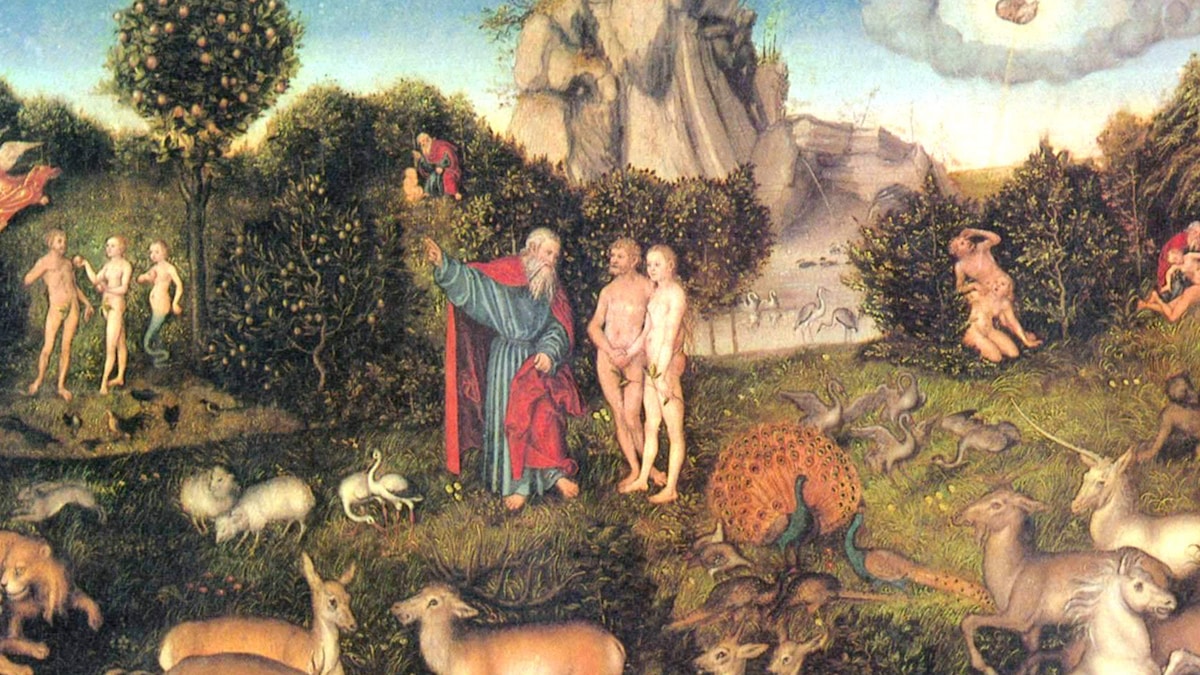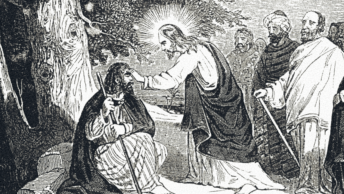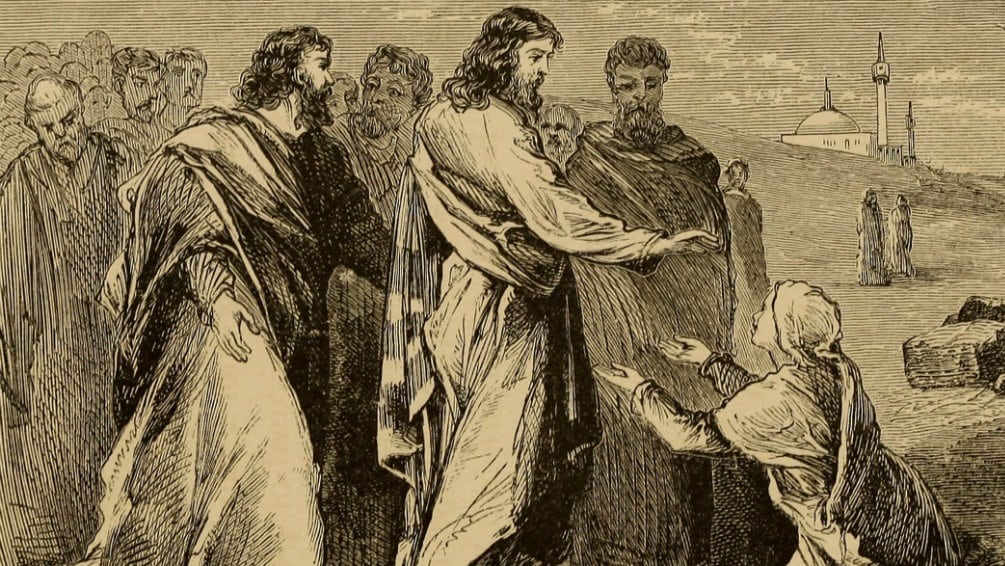To better appreciate our gospel passage (Mark 1:40-45) for the 6th Sunday in Ordinary Time, I was thinking of the emotions which, most certainly, would grip the heart of a person with an irresistible passion for gardening and who, one morning, wakes up to the horrific sight of her garden in a mess: the gorgeous flowers whacked, plants mercilessly uprooted and trampled upon. In the beginning, before original sin devastated everything, God’s creation was like a most beautiful garden. In this passage about the healing of a leper, we should understand the verbs used by the evangelist Mark to describe Jesus’ emotions as a mixture of anger, disappointment, and intense pity.
We must keep in mind that Jesus, the second Person of the Holy Trinity is the Word (cf. John 1: 3) through whom the world was created in all its beauty, order, and harmony. The sight of the poor leper triggered in Jesus the same emotions of a person whose beautiful garden was senselessly vandalized.
“Moved with pity” should be rendered by the words: “moved with anger and indignation” because someone’s sins had caused the dreadful disease of leprosy to disfigure that man and forced him into isolation and away from interpersonal relationships.
“He dismissed him at once.” Should be better rendered by the words: “he drove him out,” as if casting out with the healed man, also the demon of feeling overwhelmed by so much suffering all around him.
This is the only explanation I could come up with to make sense of these odd verbs used by Mark. So many cases of devastation caused by sin all around the Lord Jesus and so little time to soothe so much suffering!
Now, what is the reaction Jesus desires us to have as we meditate on this page of the gospel of Mark? In a nutshell, it should be for us to react to sins, within the limitations of our human nature, the way God reacts to sins in the infinitude of his mercy and love. Arguably the most shocking phrase in the whole Bible is this one: For our sake he made him to be sin who did not know sin, so that we might become the righteousness of God in him. (2 Corinthians 5:21)
The Father allowed his Son Jesus to become sin, to become the only reality which God hates, so that we can become as righteous as he is. Out of “insane” love, God the Son becomes hateful to the Father so that, through his blood shed on the cross and through his resurrection, we can overcome sin and await a destiny of becoming Godlike, of becoming pure love.
As it was with all those suffering from leprosy, our sinfulness should always be present to our inner self as an unbearable condition (for I know my offense; my sin is always before me. Psalm 51:5), yet we should imitate the leper who realized that Jesus had the power to heal him in the completeness of his being.
Rather than having to cry out: “Unclean, unclean!” he dared to challenge Jesus to prove to him that he was sent by the Father to reestablish the beauty, the order, and the harmony of creation at its origin: “If you wish, you can make me clean.”
Jesus was waiting for that challenge! He had taken on human flesh to shoulder all the sins of the world and all the pain caused by sins. He had become sin! Hence, intentionally, Jesus touched the leper. Intentionally, he contaminated himself. But, in his infinite compassion and boundless power, the opposite occurred: “I do will it. Be made clean.” Order, beauty and harmony were reestablished.
Likewise, filled with hope and in humble acknowledgement of our sinfulness, we should approach our Lord Jesus Christ, especially through the Sacrament of Reconciliation, to be freed of the leprosy of our sins and be made whole again. Whenever, in heartfelt sorrow, we challenge the Lord to display his infinite power and boundless mercy, we are cleansed of our sins and reinserted into our community of Faith.
But it is important that we keep our sinfulness always before our eyes for two reasons: first, so that we can make up for the devastation our sins have wrought to the Body of Christ by bearing the fruit of the Spirit: love, joy, peace, patience, kindness, generosity, faithfulness. (cf. Galatians 5:22).
And second, like the cured leper, to proclaim far and wide the marvels that the Lord does in us.








